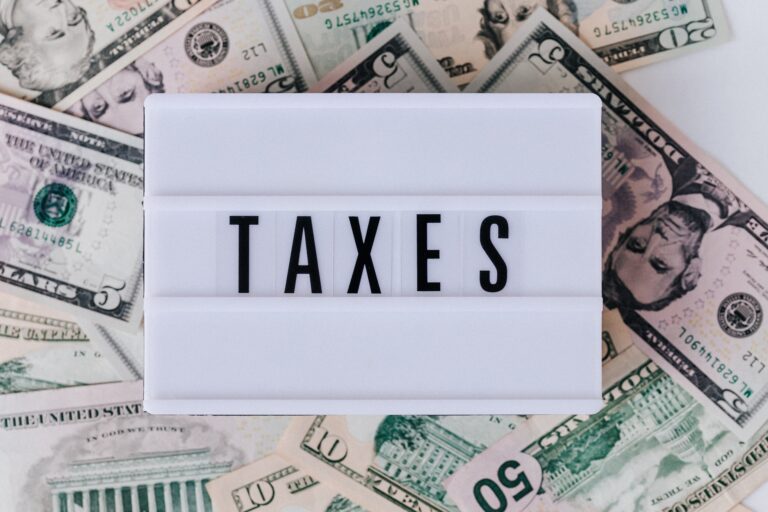Five Strategies For Saving Money When You Don’t Have Much Of It
It seems like we can all use a little more money, right?
When I was younger, my father used to tell me that cutting expenses was one of the best ways to free up money in your budget. Of course, you can always earn more money by taking a job offer elsewhere or requesting a promotion. Nevertheless, it is far simpler to make a list of your spending and work backward from there. Increasing revenue is rarely that easy.
There are a few simple strategies to cut your monthly spending and free up cash for other financial objectives I would like to share with you.
Just know, the list that follows is by no means “all-exhaustive.” Simply getting you to think “outside the box” about your monthly budget is all I’m trying to do.
1. Eliminate Cable
It seems that cable TV was the only choice up until a few years ago. As with everyone else, I invested in cable for my home.
For the first 12 months, I saved a lot of money. It was fantastic, but the discount was only for brand-new customers. The cost of cable more than doubled after the 12-month “discount” point. From there, it rose further each 6 or 12 months.
I became aware that we could no longer pay the cost when it reached a certain dollar amount per month. I knew we could no longer afford it. So I canceled my service over the phone.
What did I do instead? Well, I bought a Roku after doing some research – one for each of our two TVs. Next, we signed up for Netflix and Hulu. Now, we have a Roku, and on each of our TVs, we can access Netflix and Hulu.
Hulu continues to provide access to all the new TV shows as well as older ones, and Netflix offers a sizable movie library. Plus, we saved quite a bit each month by switching from Cable!
2. Cell Phone Ideas
These days, surviving without a cell phone is challenging. All of the main cell phone providers offer comparable monthly service plan prices. However, if you get a prepaid cell phone, you might be able to save money each month.
A crisis arose for me a few years ago. My family and I thus experienced financial hardship for a few months.
I called my cell phone provider and explained the situation my family and I were in, while looking for solutions to minimize and reduce expenditures. I mentioned that we would be unable to pay our bill for the foreseeable future. He questioned my financial situation. I informed him that there was no way he would consent to such a significant reduction in our monthly expenses. The man offered, “Try me.” I informed him we could probably only afford to pay half of our monthly payment. He said, “You got it!” in response.
He advised me to call him whenever I had trouble paying the payment on a regular basis during our talk. He continued by saying that rather than taking it to collections or taking other legal action, the majority of businesses would want to negotiate a fair resolution for all parties.
The lesson here is that it never hurts to ask!!
3. Shop At Second-Hand Stores
If you want to save money, second-hand shops are a great resource to employ. This is an especially helpful tip to cut spending if you have children at home. Our family includes two growing children – so that simple fact alone tells the story.
For the rest of their children’s clothes, including pants, shirts, socks, and other items, some families pay full price. Personally, I find it difficult to rationalize paying full price for a garment that my child or children will wear for only a few months (sometimes less) before outgrowing them.
In our region, there is a specialized second-hand children’s apparel store. Not only are the prices cut, but you can also sell clothing to the store and get cash or store credit in exchange. It is a fantastic method to make a little money and save some money all at once.
Utilizing a second-hand clothing store is a great option if you’re looking to reduce your monthly spending. You can use this method for most clothes – but I would still buy some items new, of course, such as socks, underwear, and undershirts.
4. Stop Eating Out
Simply ceasing to eat out is one of the best ways to cut costs. Your diet and wallet will appreciate it.
Meals prepared at home are more affordable than purchased from a grocery shop. Of course, it takes more preparation, but you will start to see cash benefits right away.
The same holds true for specialty coffee beverages, gas station munchies, and other impulsive purchases. You can buy a one-month supply of coffee from the store for the cost of one to two specialty drinks from a coffee shop. Do you see the achievable savings?
If you really don’t think you can give up eating or “drinking out” completely, can you cut back to once a month or once a week?
5. Purchase Canned and Frozen Food
Produce has a shorter shelf life and is often more expensive when it comes to meals.
It’s fantastic to purchase fresh fruits and veggies, but if you don’t use them right away, they can spoil quickly. Maintaining a supply of canned and frozen items will help you avoid this short shelf-life and usually more-expensive pricing for fresh produce.
You will be happy to learn that the nutritional value of fresh fruits and vegetables is nearly comparable to that of their frozen counterparts, if you are a health-conscious consumer like I am. Foods that are frozen or canned typically cost less and keep for longer than fresh produce.
For fresh meat versus frozen meat, the same case can be made.
Final Thoughts
I hope these ideas encourage you to consider potential financial opportunities in your own circumstances.
I’ve talked about thinking outside the box. My advice is to start thinking creatively if you want to reduce spending and save money. Take an objective look at your individual position when trying to reduce your spending. Even a loved one can be asked for assistance. Making an inventory of your spending is a great first step.
Consider the advantages and disadvantages of each specific expense. Is it a “need” or a “want”? What “wants” can you forgo and/or cut back on?
From there, make some decisions, put them into action, and stick with your plan. Also, don’t forget to re-evaluate this process on a regular basis, as costs go up, income sources change, and our financial situation often morphs from month-to-month or year-to-year.
My last point is to be gracious with yourself. For example, if you’ve made a plan to cut back on eating out once a month, and you splurge with a second trip to a restaurant, don’t beat yourself up. You can always regroup, get back on your plan, and stick with it. After all, we’re only human, and nobody is perfect.







